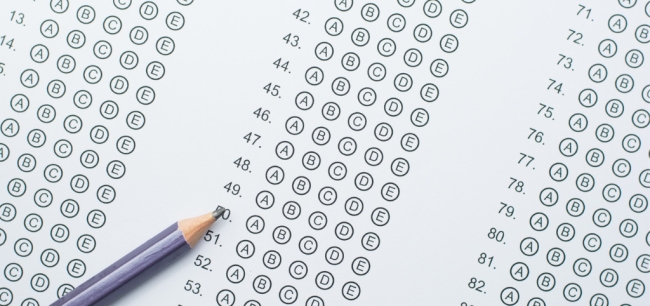You have /5 articles left.
Sign up for a free account or log in.

iStock
A California judge on Monday issued a preliminary injunction barring University of California campuses from considering SAT or ACT scores in admissions or financial aid decisions.
While the ruling is not permanent, the judge indicated that the plaintiffs bringing the suit -- a coalition of organizations serving low-income and minority Californians -- are likely to prevail.
The ruling is the latest development in the battle over standardized tests in admissions, and it appears to represent a significant victory for critics of testing. That is because the ruling came after the University of California Board of Regents voted, in May, to approve a five-year plan to phase out the use of the SAT and ACT. In the first two years of that plan, the university system was to be test optional, meaning applicants could continue to submit scores, but they didn't have to. Now the university system must be test blind, meaning that no student can submit a test score.
"While they decry the asserted, racially discriminatory and classist impact of the tests, their primary argument is that the current 'test optional' policy at most of the UC campuses denies … applicants with disabilities meaningful access to the additional admissions opportunity that test-submitters will enjoy, in large part because they will not have taken these tests and will not be able to take them with appropriate accommodations during the COVID-19 pandemic," wrote Judge Brad Seligman.
Seligman said this argument justifies the injunction, particularly now when people have a tough time registering for the tests, let alone registering for the tests with accommodations for having disabilities.
He rejected the university's argument that no one has to take the test anymore. UC campuses that are test optional can admit students who submit good test scores. This is an inherent benefit to those students that other students do not receive, Seligman said.
As for UC's argument that a test-optional framework benefits some disadvantaged students, he said that this was "speculative" and "more to the point, does not dispute that applicants with disabilities will be unable to take advantage of this benefit or that disadvantaged applicants in general would be much less likely to benefit from the test option than non-disadvantaged applicants."
Seligman also noted that some UC campuses -- including Berkeley -- have gone test blind. However, a majority of UC campuses are test optional. The University of California, Los Angeles, tells applicants to "remember, the ACT and SAT are optional, and if you choose to submit your scores we will take them into account. However, no applicant will be disadvantaged in any way for not submitting an SAT or ACT score."
Wrote Seligman, "While the regents' declarants state that the absence of tests will not be held against applicants, and assert that admissions officials will be trained to not do so, they do not dispute that the inclusion of test results can help an applicant's chances of admission, and will not hurt their chances of admission. As counsel for UC conceded at the hearing on this matter, test results can only help, and never hurt an applicant. Put another way, the tests are treated as a plus factor, and thus test-submitters are given a second opportunity for admissions consideration."
Robert Schaeffer, interim executive director of FairTest: The National Center for Fair and Open Testing, and a longtime critic of the College Board, said, "The California court decision is a major step forward in the movement to eliminate reliance on ACT/SAT scores in college admissions. The preliminary injunction is crystal clear that there cannot be a level playing field for test takers with disabilities. This ruling has national implications -- the same protections under the Americans With Disability Act should apply to all test-takers across the nation."
Jay Rosner of the Princeton Review Foundation, who has run a test prep business, said he's "looking forward to the day when there is no need" for test prep. But he said he was glad to see the University of California forced to abandon testing.
He added, however, that "testing isn’t going away so fast." Numerous states have contracts with the College Board and ACT, and "sadly, a bunch of the one-year test-optional campuses will revert to requiring the tests post-COVID."
The University of California responded with a statement that said, "UC respectfully disagrees with the court’s ruling. An injunction may interfere with the university’s efforts to implement an appropriate and comprehensive admissions policies and its ability to attract and enroll students of diverse backgrounds and experiences. The university is evaluating whether further legal actions are called for."
The statement added, "In its opposition to the injunction (attached), UC outlined how each campus carefully assessed whether and how it will use SAT and ACT scores in admissions for fall 2021 and fall 2022, should an applicant choose to submit them. Some campuses have decided that they will not consider ACT or SAT scores in evaluating applications for fall 2021 applicants, while other campuses have decided to follow a phased approach or are in the process of making a final decision. University admissions officials and faculty are best positioned to determine appropriate admissions decisions and procedures, taking into account the individual needs and priorities of a particular campus."
The College Board declined to comment.
ACT released a statement that said, "In this challenging environment, we respect the need for institutions and systems to make temporary changes to their admissions policies and practices to support the students they serve. However, and despite COVID-19, we continue to offer the ACT (including with accommodations), ensuring access to our assessments for students with disabilities."




